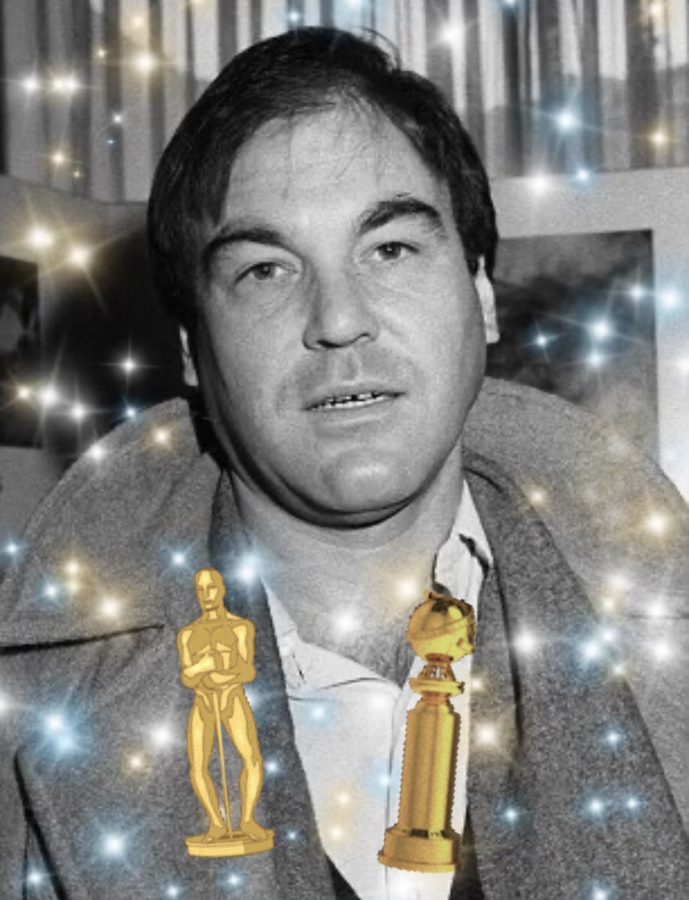Happy Alumni Weekend from Off-Third, WSN’s satire section. Try not to take us too seriously.
I’d been nervous to interview Oliver Stone. To call the Tisch alumnus multifaceted would be a bit of an understatement. Stone, whose Wikipedia page describes him as a “filmmaker, director, writer and conspiracy theorist,” has 51 films, seven books, three Academy Awards and six Golden Globes under his belt. He fought in the Vietnam War and was awarded nine times for his service; he’s apologized to the entire country of Turkey for misrepresentation; he’s argued for a Jill Stein presidency; he was a Scientologist for a month. And he’s not stopping any time soon.
“Yeah, that Scientology thing was crazy,” Stone tells me as we wait in line at the Starbucks on Astor Place. “I don’t exactly remember why I did it, but the public perception was ridiculous. Scientologists are really f-cking oppressed, and don’t ever let anyone tell you otherwise.”
After he orders his drink (a black coffee “in the biggest size you’ve got”), we take a seat at the table closest to the middle of the room. “I like to be in the center, whichever way you’d like to interpret that,” he tells me. I point out that he’s been described as a leftist on multiple occasions, and he brushes it off.
“I’m different now,” he says. “It doesn’t seem like the leftists want me anymore.” When I push further, he declines to comment and changes the subject.
“They really love me here,” Stone tells me. And he’s not wrong. In 2008, Stone was named artistic director of the now-defunct Tisch Asia, and in 2013, he was honored at Tisch’s annual gala for Outstanding Achievement in the Cinematic Arts. Tisch loves him, and so does NYU.
He leans in, as if to tell me a secret. “You know, they were going to offer me a position on the Board of Trustees,” he says. “I mean, they never said they were, but there’s no reason why they wouldn’t give it to me.”
This is the first I’ve heard of this. “Really?”
“Yeah.” Stone leans back and I hear his chair creak, though the Starbucks is loud. “But they found out that I think Jews control the media, so they decided not to.” He doesn’t lower his voice when he says this.
“Do you think they would have given you the position otherwise?” I haven’t touched my drink, and I see Stone eyeing it.
“Of course they would.” He’s confident. Without warning, he reaches across the table, grabs my latte and starts drinking.
“NYU gives me so many awards,” he continues as if nothing happened. “I’m speaking at three events this weekend. They love me, they just don’t want to ruin their optics. Do you know how bad it would look if NYU had Oliver Stone on the Board of Trustees?” He finishes my coffee.
I point out that the Board of Trustees isn’t exactly a collection of saints, but he shrugs and insists that they wouldn’t have given the position to him anyway. I push further, but he shies away; it seems that he wants to be a martyr. I drop it.
The day after our interview, I see a stream of students leaving Skirball. Stone has just conducted a panel for Alumni Weekend on free speech in relation to his recent series of interviews with Vladimir Putin.
“Yeah, he’s problematic,” Tisch senior Jack Pierson says. “But I don’t have a problem watching his movies. They’re objectively good. You just have to learn how to separate his art from his beliefs.”
When I point out that Stone’s art reflects his beliefs — in the Putin interviews, he describes Russia’s 2013 legislation banning “gay propaganda,” which has since been used to nearly ban LGBTQ activity entirely throughout the country, as “sensible” — Pierson shrugs.
“You just don’t get it,” he tells me. “Art is art.”
I guess I’ll never understand.
This article is satirical, and all quotes and events are entirely fabricated unless stated otherwise.
Email Abby Hofstetter at [email protected].


























































































































































